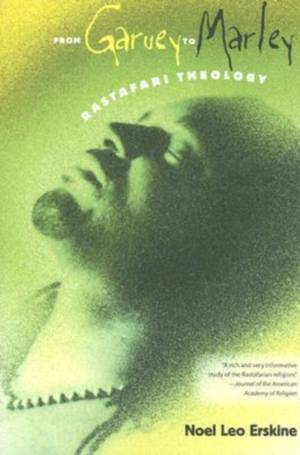
- Retrait gratuit dans votre magasin Club
- 7.000.000 titres dans notre catalogue
- Payer en toute sécurité
- Toujours un magasin près de chez vous
- Retrait gratuit dans votre magasin Club
- 7.000.0000 titres dans notre catalogue
- Payer en toute sécurité
- Toujours un magasin près de chez vous
Description
This history of the theology and rituals of Rastafarianism features accents of the reggae rhythms of Bob Marley and the teachings and philosophy of Marcus Garvey, the black nationalist who motivated many of his fellow Jamaicans to embrace their African ancestral roots. Written by a trained theologian who was raised in the Jamaican village in which the Rastafarian faith originated, the book offers both a serious inquiry into the movement and the perspective of an insider in conversation with elders of the faith who still live in the village. Marley, who died in 1981, is the best known and one of the most articulate exponents of the themes of race consciousness that provide the core of Rasta hermeneutics. The poet and musician also made the faith appealing to the Jamaican middle class, which had turned away from the "Back to Africa" message that Garvey delivered in the 1930s. Noel Leo Erskine isolates and defines the main tenets of Rastafarianism, which emerged toward the end of the 20th century as a way of life and as a new international religion. He includes biographical descriptions of the key players in the development of Rastafari theology, provides details of its organization and ethos, and discusses the role of women in the religion. He also discusses the significance of Ethiopia to the faith; practitioners view that country both as their homeland and as heaven on earth. Examining the religion's relationship to Christianity, Erskine relates the Rastas to 19th-century Native Baptist and Revivalist traditions on the island and to the black theology movement in the United States. The Rastas see the European and North American churches as representatives of an oppressive colonial class, he writes. The Rastafarian name for God--"Jah"--is derived from Yahveh, the God of the Hebrews, and members of the faith connect their struggle for dignity and solidarity in Jamaican society with the struggle of the oppressed Israelites. "Jah" and not the Bible is the decisive source of morality and truth for the Rastas. Clearly written, sympathetic, and at times critical, the book will be important in the fields of African, African American, and Caribbean studies, especially to the cultural and religious dimensions in each discipline.
Spécifications
Parties prenantes
- Auteur(s) :
- Editeur:
Contenu
- Nombre de pages :
- 256
- Langue:
- Anglais
- Collection :
Caractéristiques
- EAN:
- 9780813030784
- Date de parution :
- 22-04-07
- Format:
- Livre broché
- Format numérique:
- Trade paperback (VS)
- Dimensions :
- 150 mm x 217 mm
- Poids :
- 353 g

Les avis
Nous publions uniquement les avis qui respectent les conditions requises. Consultez nos conditions pour les avis.






